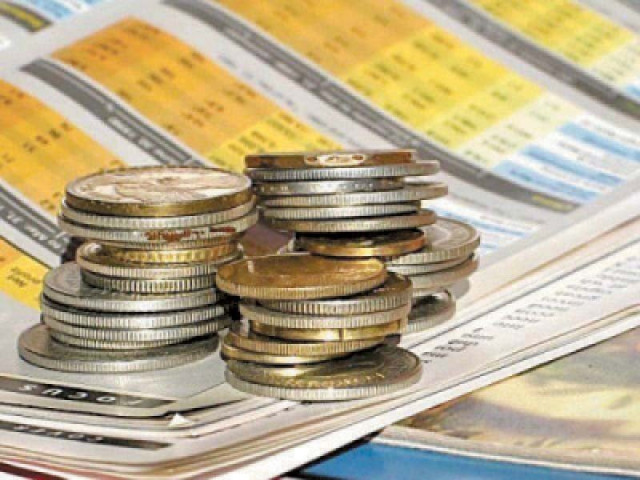Inflation likely to slip further
Lower inflation may encourage central bank to leave policy rate unchanged

The latest jump in cut-off yields on 3-12 months sovereign papers – T-bills – suggests that the benchmark interest rate and inflation reading are close to “peaking out” and economic activities are bound to gain momentum in Pakistan.
The cut-off yields on 3-12 months T-bills stood higher compared to the longer-tenure papers like 3-10 years Pakistan Investment Bonds (PIBs). This is an unusual situation.
“The inverted yields (higher on short-term papers compared to the long-term papers) strongly signaled that the inflation reading and the benchmark interest rate are close to ‘peaking out’,” Arif Habib Limited (AHL) Head of Research Tahir Abbas said while talking to The Express Tribune.
With a recent jump of 40-55 basis points (bps), the cut-off yield on 3-12 months T-bills surged to 12% to 12.7% compared to 11.74-11.85% on 3-10 years PIBs recorded in the bonds’ auction held on March 16.
To recall, the central bank revised up the benchmark interest rate by a total of 275bps during September-December 2021 to 9.75%. It left the rate unchanged for the second time in the ongoing month of March.
On the other hand, the monthly inflation reading decreased to 12.2% in February from a two-year high of 13% in the prior month of January.
“The inflation reading is expected to come around 12% for the month of March,” Abbas projected.
“The tapering off in the inflation reading may encourage the central bank to once again leave the benchmark interest rate unchanged at 9.75% and if needed the rate hike will be gradual in the range of 25-50bps in the monetary policy committee (MPC) meeting scheduled to be held on April 19.”
The government has subsidised and fixed petrol, diesel and power prices till June 30, 2022. “This will help keep the inflation reading comparatively low at around 12% in March,” he said.
Price fixation for petroleum products, however, has continued to take its toll on the rupee-dollar exchange rate as demand for dollars remained high for import of petroleum products at the prevailing high prices.
The rupee hit a new all-time low at Rs181.73 against the US dollar in the inter-bank market on the last working day.
Pak-Kuwait Investment Company Head of Research Samiullah Tariq held the view that the rate would remain unchanged or would go up nominally following a significant reduction of around 80% in the current account deficit in February from the historic high recorded in the prior month of January 2022.
“The reduction in the current account deficit has improved Pakistan’s balance of (international) payments.”
Commercial banks in the private sector have continued to charge the government a higher lending rate after the central bank closed its door on the government to borrow from it.
“The government borrowing from the central bank causes inflation in the economy,” he said.
KASB Securities Head of Research Yousuf Rahman, however, said that the commercial banks have continued to jack up the cost of lending to the government on expectations that the central bank would revise up the benchmark interest rate next month, as rebound in international crude oil prices would keep inflation reading elevated.
The government borrowed a total of Rs693.5 billion through auctioning three, six and 12-month T-bills to commercial banks against a target of Rs800 billion. The government acquired the financing at a 40-55bps higher on Tuesday.
The international crude oil prices rebounded to $115 a barrel after the Russia-Ukraine war failed to end, against the expectations of early resolution of the conflict.
“The oil price is expected to remain on a higher side for the next five-six months,” he said.
Published in The Express Tribune, March 24th, 2022.
Like Business on Facebook, follow @TribuneBiz on Twitter to stay informed and join in the conversation.



















COMMENTS
Comments are moderated and generally will be posted if they are on-topic and not abusive.
For more information, please see our Comments FAQ